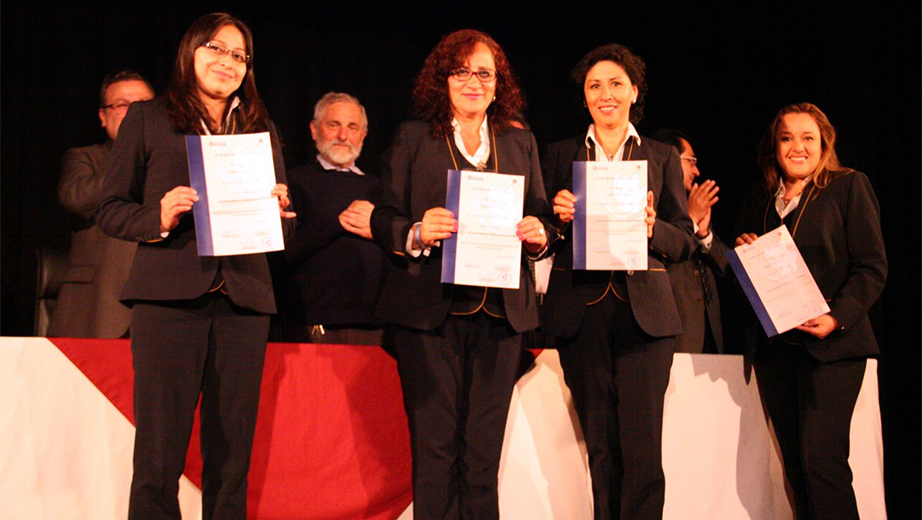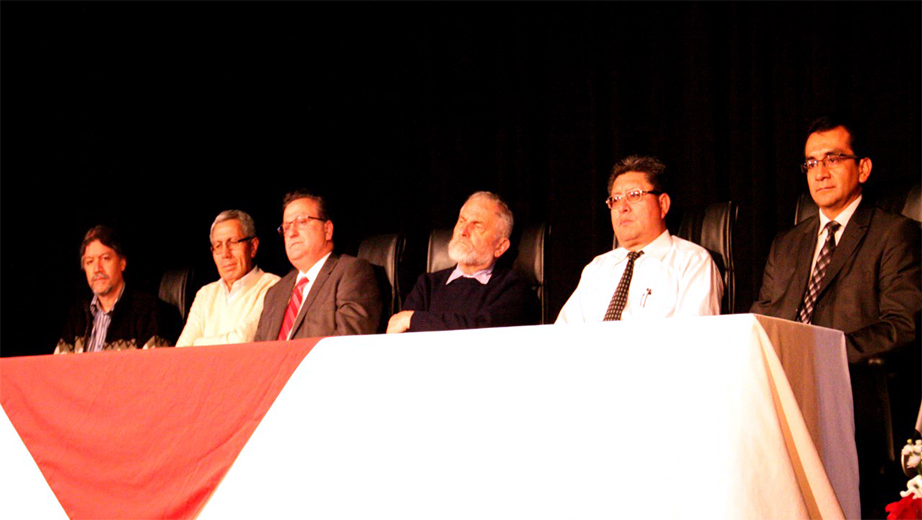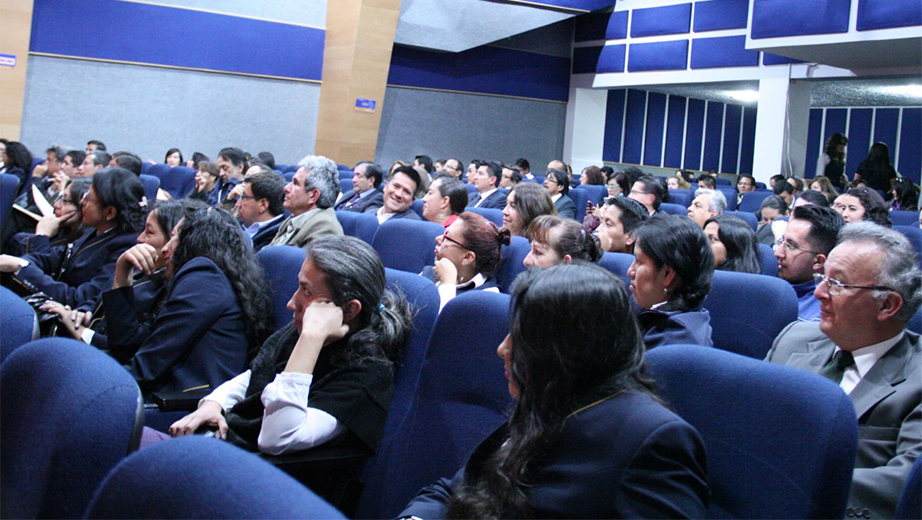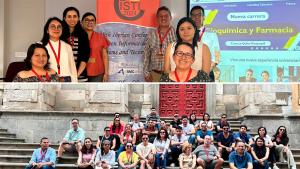Training courses for professors and administrative staff came to an end
Training courses for professors and administrative staff came to an end

On December 14th the university held a closing ceremony for the training sessions that were held for professors and administrative staff. University officials in the main table were: Jose Juncosa, vice president of the university's branch in Quito; Juan Bottasso, founder of the Abya Yala Publishing House; Patricio Benavides, academic coordinator; Guillermo Pillajo, director of human resources and UPS professors Jaime Padilla and Milton Cerda.
Four hundred people from the university's branch in Quito updated their knowledge and strengthened their skills during the training courses. The courses were: personal development and group processes, academic writing, documents and archives management, drawing 2D and 3D structural blueprints, excellence in quality service, strengthening teamwork and strategic planning, advanced excel, reading to develop critical thinking, office automation and virtual learning environments.
The following professors collaborated: Juan Bottasso, Jaime Padilla, Viviana Montalvo, Jorge Zapata, Milton Cerda, Ivonne López, Cristina Naranjo, Catya Torres, José Luis Galván, Rodrigo Reyes, Francisco Rodas, Luis Peña, Luis Novoa, Santiago Díaz, Geovanny Lucero, Lucía Toro, Luis Peña, Luis Novoa, Pablo Vázquez, Ximena Ramírez and Guillermo Pillajo.
Jose Juncosa said UPS has begun a path of being demanding. He invited professors to create a demanding academic culture that generates study and research environments. "The training sessions demonstrate the university's efforts so we can become better professors and administrative staff", he said.
Father Juan Botasso looked back at the beginnings of UPS, when it had only two majors, Psychopedagogy and Anthropology. He said that the growth of the university demonstrates the confidence it has gained, therefore it is necessary to educate people who are committed to justice and human rights as well as being creative and innovative, people who can see the vast opportunities this country offers. "People who work in UPS can transmit these values and make it better than it was before", he said.
Guillermo Pillajo said that "all these activities have strengthened the development of people's skills. However, there is still a lot we can do, that's why UPS is committed to training its staff".







Follow us
Follow us